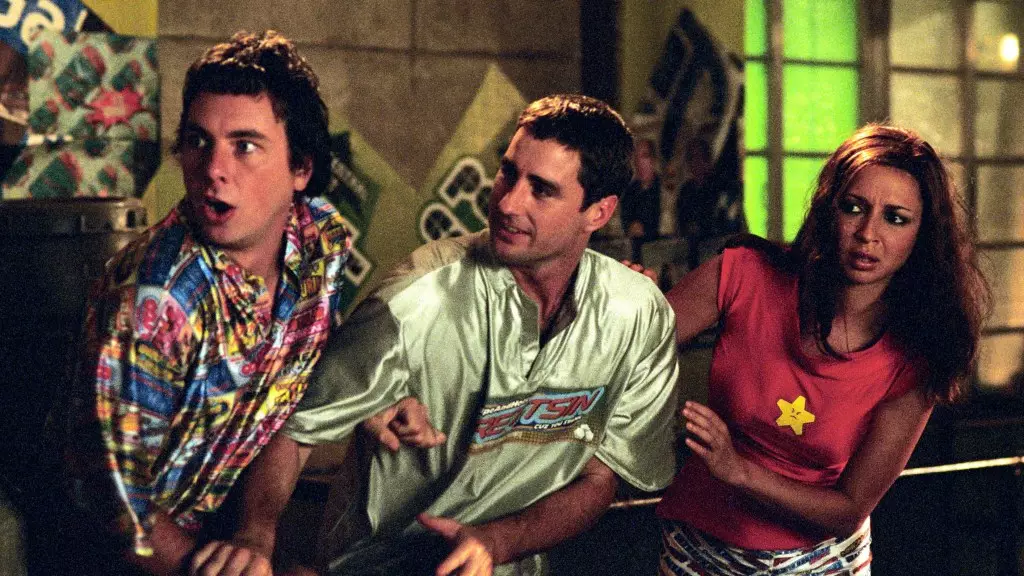In the realm of cinema, there are films that thrive during their initial releases and those that languish in obscurity, only to discover their true power years down the line. One such film is ‘Idiocracy,’ directed by Mike Judge and released in 2005. Despite a lackluster box office performance and a tepid reception from critics, ‘Idiocracy’ has transformed into a cultural touchstone that resonates profoundly in today’s society. The film, featuring Luke Wilson and Maya Rudolph, tells the story of a man who wakes up 500 years in the future to find society at a staggering intellectual low. As Luke Wilson reflects on this journey nearly two decades later, the discussions surrounding a potential sequel reveal deeper layers of significance and insight regarding this unconventional comedy.
Much to Wilson’s astonishment, ‘Idiocracy’ has garnered a dedicated cult following, which speaks volumes about its latent relevance. The film’s satirical examination of societal decline, disinformation, and anti-intellectualism eerily mirrors contemporary socio-political issues. Wilson’s admiration for the project is evident as he shares his ongoing conversations with Mike Judge about creating a sequel, hinting at a narrative that could explore the dynamics of their characters in modern times. His proposition to involve other actors, like Terry Crews and Dax Shepard, illustrates a desire to not only revisit the characters but also to tackle new narratives rooted in the absurdities of today’s world.
One of the film’s most intriguing stories lies behind the scenes. Wilson discussed how 20th Century Fox’s decision to limit the film’s release significantly undermined its potential success. With a mere gross of $495,652, it initially appeared as a failure, prompting the studio to effectively bury it. However, this decision inadvertently paved the way for the movie’s eventual rise as a cultural phenomenon. It demonstrates a classic case of misunderstanding a film’s audiences and the power of grassroots reception. The limited theatrical run only propelled ‘Idiocracy’ into the realm of cult status, increasing its notoriety through word-of-mouth and online discourse.
Over the years, ‘Idiocracy’ has become deeply intertwined with contemporary politics, often used as a reference point for analyzing current leadership. The character of President Camacho, played by Terry Crews, serves as an unsettling reflection of the ‘celebrity politician’ trope, reminiscent of figures like former President Donald Trump. Wilson’s acknowledgment that ‘Idiocracy’ might be his most enduring role unveils the unexpected resonance this film has harnessed over the years, attracting attention especially during election cycles. The film’s biting satire has transcended mere entertainment, rendering it a critical lens through which society reflects on its intelligence and values.
For Wilson, the continued discussion surrounding ‘Idiocracy’ represents a significant chapter in his career and personal growth. It signifies how an unexpected project can continue to influence and connect with audiences globally. His recounting of the movie’s harsh initial reception juxtaposed against its current popularity showcases the evolving nature of cinematic appreciation. The actor’s persistence in pitching a sequel highlights his acknowledgment of the film’s legacy and potential for further exploration of its absurd themes.
The enduring story of ‘Idiocracy’ emphasizes a larger narrative surrounding creativity, understanding societal implications, and the necessity of intellectual independence. As Luke Wilson yearns for a sequel, it becomes clear that there exists a hunger for narratives that reflect and critique our realities. The current landscape of entertainment and politics calls for innovative storytelling that bridges the gaps between fiction and the absurdity of real life. Perhaps ‘Idiocracy,’ with all its charm and biting satire, could very well rise again, proving that even in its misinterpretation, it captures the zeitgeist of a generation wrestling with its intelligence—and its future.

